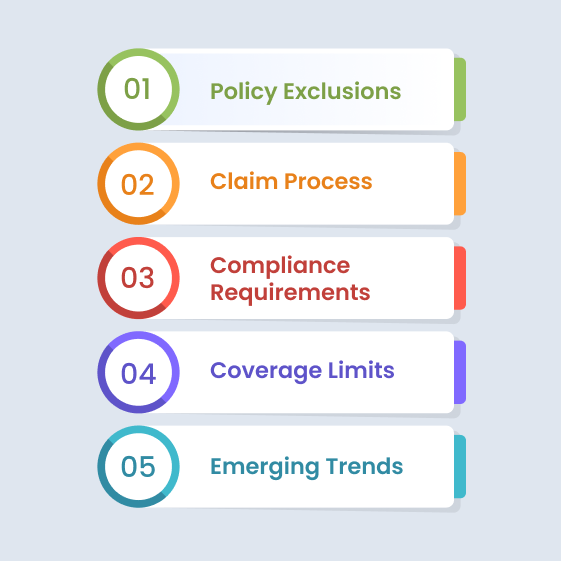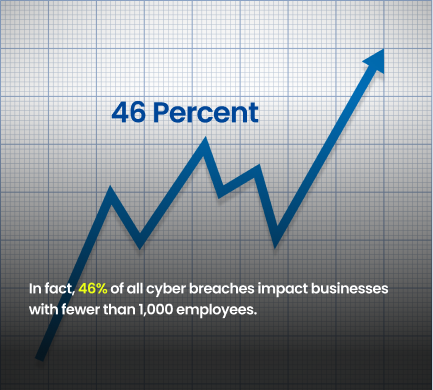Cyber Insurance and Data Breaches: How Coverage Can Save You?
A Closer Look at the boAt Data Breach: Lessons Learned and Preventive Strategies
Ensuring Cyber Security: Insurance for Remote Employees
Introduction:
Imagine a bustling coffee shop, filled with the aroma of freshly brewed coffee and the low hum of chatter. Amongst the patrons sits Sarah, diligently typing away on her laptop, connecting to her company’s network via the public Wi-Fi. Little does she know, lurking amidst the comforting ambiance, lies a lurking threat—one that could jeopardise not only her work but also the entire business she represents.
The rise of remote work has been nothing short of meteoric, with a staggering 140 percent growth since 2005,
 outpacing the expansion of the workforce itself by tenfold. In today’s digital landscape, the benefits of remote work are undeniable, offering flexibility and efficiency for both employees and employers alike. However, with great convenience comes great risk, especially when remote workers access company platforms through unsecured Wi-Fi connections in coffee shops and airport terminals.
outpacing the expansion of the workforce itself by tenfold. In today’s digital landscape, the benefits of remote work are undeniable, offering flexibility and efficiency for both employees and employers alike. However, with great convenience comes great risk, especially when remote workers access company platforms through unsecured Wi-Fi connections in coffee shops and airport terminals.
According to Nationwide Insurance’s fifth annual Business Owner Survey, a whopping 83 percent of business owners provide employees with the option to work remotely when necessary. Yet, despite the widespread adoption of remote work, many businesses remain dangerously exposed to cyber threats. Shockingly, only 50 percent of small business owners have updated their remote work security policies in the past year, leaving gaping vulnerabilities in their defences.
Cyber Risks in Remote Work Environments:
Remote work environments present unique challenges when it comes to cybersecurity. The use of personal devices, unsecured networks, and potential lapses in security protocols make remote employees more susceptible to cyber threats. According to the Nationwide survey, 65 percent of business owners admit they have been victims of cyberattacks, with computer virus attacks and phishing being the most common types reported.

One of the biggest concerns for businesses is the use of public Wi-Fi networks in remote work settings. Despite the convenience they offer, these networks pose significant security risks. As Catherine Rudow, vice president of cyber insurance at Nationwide, warns, “What may seem like a harmless public Wi-Fi network could ultimately pose serious troubles for a business.”
Importance of Cyber Insurance for Remote Workers:
In light of the growing prevalence of cyber threats, cyber insurance has emerged as a critical safeguard for businesses, especially those with remote employees. Cyber insurance, also known as cyber liability insurance or data breach insurance, provides coverage against financial losses resulting from cyber attacks, data breaches, and other cyber-related incidents.
Despite the potential damage from cyber threats, the Nationwide survey found that only four percent of business owners have implemented all of the cybersecurity best practices and recommendations from the U.S. Small Business Administration. This highlights the urgent need for businesses to invest in comprehensive cybersecurity measures, including cyber insurance, to protect against the ever-evolving threat landscape.
In today’s digital age, cyber threats are on the rise, and businesses of all sizes are vulnerable. With the shift towards remote work, ensuring cyber security for remote employees has become a critical concern. One effective solution to mitigate these risks is cyber insurance. In this blog post, we will explore the importance of cyber insurance for remote workers, its benefits, and key considerations for businesses.
What is Cyber Insurance?
Cyber insurance, also known as cyber liability insurance or data breach insurance, is a specialised insurance policy that provides coverage against financial losses resulting from cyber attacks, data breaches, and other cyber-related incidents. It helps businesses manage the financial impact of cyber risks and protect their sensitive information.
Importance of Cyber Insurance for Remote Workers

1. Increased Cyber Threats
Remote work environments are more susceptible to cyber threats due to the use of personal devices, unsecured networks, and potential lapses in security protocols. Cyber insurance provides financial protection in case of a breach.
2. Coverage for Data Breaches
Data breaches can lead to significant financial losses, reputational damage, and legal liabilities. Cyber insurance covers the costs associated with data breach notifications, forensic investigations, and legal expenses.
3. Business Interruption Coverage
Remote employees rely heavily on technology to perform their tasks. Cyber insurance includes coverage for business interruption due to cyber attacks, ensuring continuity even during disruptions.
4. Ransomware Attacks
Ransomware attacks are a growing concern. Cyber insurance covers ransom payments, data recovery costs, and loss of income during downtime.
5. Third-Party Liability
Remote workers interact with clients, vendors, and other third parties. Cyber insurance provides liability coverage in case a third party sues your business due to a cyber incident.
Key Considerations for Cyber Insurance

1. Policy Exclusions
Understand the exclusions in your cyber insurance policy. Some policies may exclude certain types of attacks or specific industries.
2. Claim Process
Familiarise yourself with the claim process. Prompt reporting and documentation are essential for a successful claim.
3. Compliance Requirements
Ensure that your cyber insurance policy meets industry-specific compliance requirements. For example, healthcare and financial institutions have specific regulations.
4. Coverage Limits
Evaluate the coverage limits based on your business’s size and risk exposure. Consider factors like revenue, data volume, and potential legal costs.
5. Emerging Trends
Stay informed about emerging cyber threats and trends. Cyber insurance policies should adapt to new risks.
Mitigata: Smart Cyber Insurance for YOU!
Mitigata, as a cyber insurance provider, understands the unique challenges faced by remote workers. Our tailored policies offer comprehensive coverage, including:
- Cyber attack insurance
- Network security insurance
- Cyber risk insurance
- Business interruption insurance cyber
- Cybercrime insurance
- Cyber policy insurance
Closing Thoughts…
Cyber insurance is a crucial component of any comprehensive cyber security strategy, especially for remote employees. By partnering with Mitigata, businesses can protect their assets, reputation, and financial stability in an increasingly digital world.
Remember, Mitigata can help you to safeguard your remote workforce and protect your business from cyber threats. Invest in Mitigata Smart cyber insurance to ensure your business’s resilience and long-term success in the digital age.
Contact us today Mitigata: Smart Cyber Insurance, Comprehensive Business and General for Corporates, Employees, and Individuals to mitigate future losses!
Importance of Cyber Insurance in Data Breach Prevention
Introduction:
In today’s hyperconnected world, data breaches have become a pervasive threat, lurking around every digital corner and targeting businesses of all sizes. The recent data breach at Nissan Oceania, impacting 100,000 individuals, serves as a stark reminder of the devastating consequences of cyberattacks. As we delve into the pivotal role of cyber insurance in mitigating such risks, let’s examine the urgent need for robust cybersecurity measures in light of this alarming breach.
The Growing Threat of Data Breaches:
Recent statistics paint a grim picture of the cybersecurity landscape, underscoring the urgency for businesses to fortify their defences against data breaches:
- Rising Incidence: Data breaches have become alarmingly common, with 61% of SMBs falling victim to cyberattacks in 2021 alone.
- Targeting Small Businesses: Contrary to popular belief, small businesses are not immune to cyber threats. In fact, 46% of all cyber breaches impact businesses with fewer than 1,000 employees.

- Increased Sophistication: Cybercriminals are continuously evolving their tactics, leveraging advanced techniques like social engineering and malware to infiltrate business networks and steal sensitive data.
- Financial Fallout: The financial consequences of a data breach can be devastating, with studies showing that around 60% of small and medium businesses that suffer a cyberattack close down within six months of the incident.
The Role of Cyber Insurance:
Amidst the looming spectre of data breaches, cyber insurance emerges as a critical safeguard for businesses, offering financial protection and peace of mind in the face of cyber threats.
Here’s why cyber insurance is indispensable in the realm of data breach prevention:
- Financial Resilience: Cyber insurance serves as a safety net, providing businesses with the financial resources to navigate the aftermath of a data breach. From covering legal expenses and regulatory fines to reimbursing affected parties for damages and credit monitoring, cyber insurance helps mitigate the financial impact of a breach.
- Comprehensive Coverage: A robust cyber insurance policy offers comprehensive coverage tailored to the unique needs and risks of each business. Coverage may include data breach response, business interruption, ransomware protection, third-party liability, and cyber extortion, among other aspects.
- Risk Transfer: By transferring the financial risk of a data breach to the insurer, businesses can effectively manage their exposure to cyber threats. This allows companies to focus on their core operations without being crippled by the financial fallout of a cyberattack.
- Reputation Management: In the aftermath of a data breach, preserving brand reputation is paramount. Cyber insurance not only helps cover the costs of public relations and reputation management but also provides guidance and support to mitigate reputational damage and rebuild trust with stakeholders.
- Regulatory Compliance: With the regulatory landscape evolving rapidly, compliance with data protection laws and regulations is non-negotiable. Cyber insurance helps ensure compliance by covering costs related to regulatory fines and penalties resulting from a data breach.
Conclusion:

In conclusion, the prevalence and severity of data breaches underscore the critical importance of cyber insurance in today’s digital age. As cyber threats continue to evolve and businesses face increasing pressure to protect sensitive information, investing in cyber insurance is not just prudent—it’s essential for long-term viability and resilience.
At Mitigata, we understand the complex challenges businesses face in navigating the cybersecurity landscape. Our tailored cyber insurance solutions offer comprehensive coverage and peace of mind, allowing businesses to focus on growth and innovation without fear of crippling financial losses from data breaches.
Don’t wait until it’s too late—protect your business with cyber insurance and fortify your defences against the ever-present threat of data breaches. Contact us today to learn more about how Mitigata can help safeguard your business’s future in an increasingly digital world.





